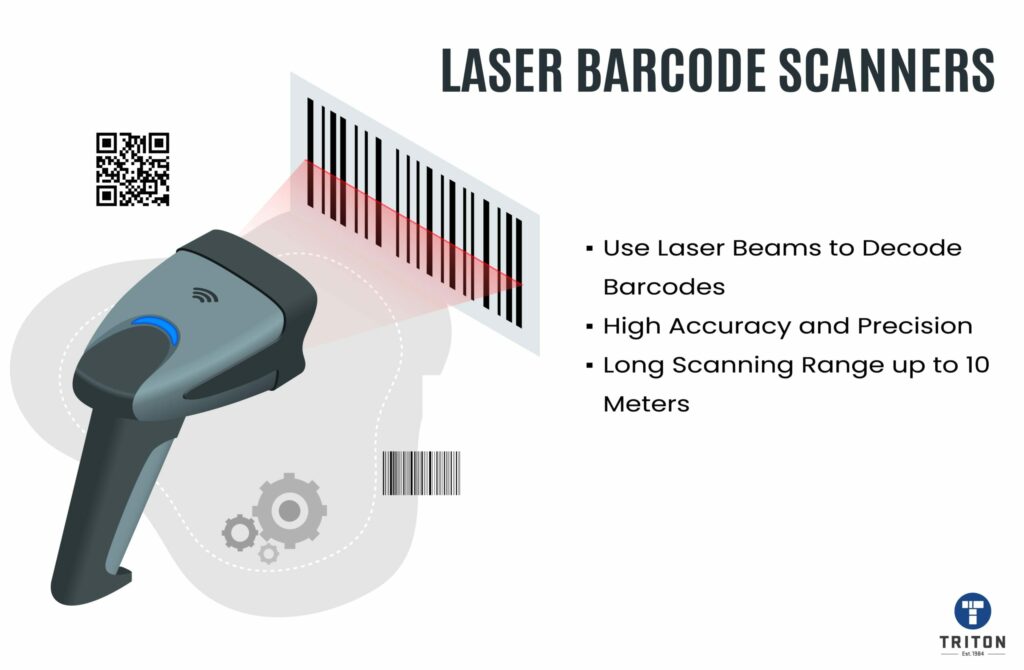Picking the Right Barcode Scanner for Your Organization Demands
Picking the appropriate barcode scanner for your service requires a nuanced understanding of your specific functional requirements and environmental conditions. Factors such as scanner type, speed, and compatibility with existing systems play a critical duty in determining the appropriate selection.
Recognizing Barcode Scanner Kind
When it involves choosing a barcode scanner, recognizing the different types available is critical for conference certain service requirements. Barcode scanners can be categorized right into a number of kinds, each created for different applications and settings.
Handheld scanners are one of the most typical, providing mobility and simplicity of usage, making them suitable for retail and supply administration. They generally connect using USB or Bluetooth, giving adaptability in operation. Fixed-mount scanners, on the other hand, are created for high-volume scanning applications, commonly found in production line or check out counters. These scanners are mounted in a fixed placement, permitting fast scanning of multiple things one by one.
An additional type is the mobile computer system, which integrates scanning capabilities with computing power. These tools are optimal for area operations or storehouse management, enabling data collection and real-time stock monitoring. Furthermore, there are commercial scanners that are developed to hold up against harsh atmospheres, such as severe temperatures or exposure to dirt and dampness.

Key Attributes to Take Into Consideration
What essential features should companies focus on when selecting a barcode scanner? Most importantly, scanning speed is crucial, as faster scanners improve operational efficiency, especially in high-volume atmospheres. The scanner's ability to check out different barcode formats is additionally crucial; ensure it supports prominent types like QR codes, UPC, and Code 128 to accommodate varied supply things.
Longevity is an additional essential attribute, especially for companies in rugged settings. Seek models that are constructed to stand up to drops, dirt, and wetness. Additionally, take into consideration the connectivity alternatives available; whether you prefer USB, Bluetooth, or Wi-Fi, the best connection can boost assimilation with existing systems.

Analyzing Your Company Setting
To efficiently choose a barcode scanner, services should analyze their details operational atmosphere. This analysis includes reviewing the physical design of the office, the nature of the items being scanned, and the normal conditions under which scanning occurs. As an example, a retail setting might need handheld scanners that can swiftly refine purchases at the check out, while blog a stockroom setup might gain from ruggedized scanners made to endure harsher conditions.
Additionally, think about the quantity of scanning called for. High-throughput settings may require innovative scanning modern technologies, such as fixed-position scanners or mobile devices that can operate successfully in busy circumstances. The integration capacities with existing inventory management systems also play an important function; make sure the picked scanner can effortlessly link with software application platforms in operation.
Additionally, evaluate the potential for development and scalability. A scanner that meets existing needs could not suffice as business expands. By thoroughly examining these factors, organizations can pick a barcode scanner that not only meets prompt demands yet also supports lasting functional efficiency and flexibility. This calculated approach inevitably adds to smoother processes and boosted efficiency.
Budgeting for Your Scanner
Having actually evaluated the operational setting and recognized the certain requirements for a barcode scanner, the following action includes cautious budgeting to ensure a wise monetary investment. Establishing a budget begins with identifying the total prices related to the scanner, consisting of first purchase rate, operational costs, and potential maintenance costs.
When choosing a barcode scanner, think about the range of offered alternatives, from handheld tools to fixed-position scanners, as rates can vary considerably. It is vital to stabilize expense with functionality; choosing for an extra affordable model might lead to enhanced functional inadequacies if it does not meet your company requirements.
Along with the hardware, variable in prices connected to software program, training, and potential upgrades. you can check here While it may be appealing to decrease upfront expense, investing in a quality scanner that aligns with your functional requirements can yield long-term cost savings via boosted effectiveness and minimized downtime.
Last but not least, take into consideration the overall expense of possession, which encompasses the scanner's life-span and possible resale worth. By diligently intending your spending plan, you can guarantee that your investment in a barcode scanner will certainly boost your operational productivity and financial efficiency.
Assimilation With Existing Equipment
Incorporating a barcode scanner with your existing systems is critical for maximizing its efficiency and ensuring smooth operations. barcodes scanners. A well-integrated scanner improves operations performance, minimizes errors, and increases data processing. When picking a barcode scanner, think about compatibility with your current software application and hardware framework, including your stock management systems, point-of-sale (POS) systems, and enterprise resource preparation (ERP) services
Evaluate whether the scanner makes use of common procedures such as USB, Bluetooth, or Wi-Fi, which can promote simple assimilation. In addition, evaluate whether the anonymous scanner's software program provides APIs or SDKs that permit modification and integration with exclusive systems. This is particularly essential for businesses with one-of-a-kind operational needs.
As your service expands, your systems should be able to accommodate extra scanners and take care of increased data volumes without substantial reconfiguration. Inevitably, spending in a barcode scanner that perfectly integrates with your existing systems will certainly generate lasting advantages, enhancing precision, effectiveness, and general productivity within your operations.

Conclusion
In conclusion, picking an appropriate barcode scanner demands a comprehensive evaluation of various elements, consisting of scanner types, important attributes, and the certain service environment. Correct budgeting for both purchase and operational costs is essential, alongside making certain compatibility with existing systems. By thoroughly considering these aspects, businesses can improve efficiency and performance, eventually leading to improved functional results. The right barcode scanner works as an important tool in simplifying processes and promoting reliable stock management.